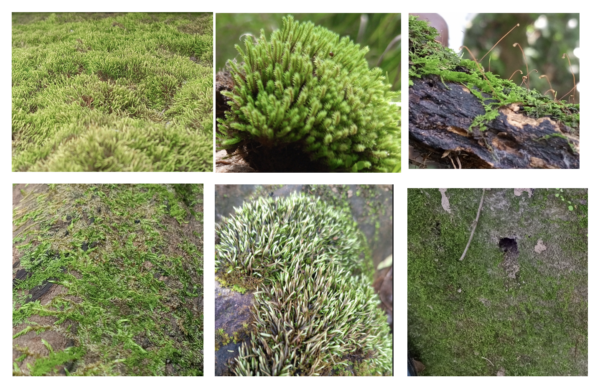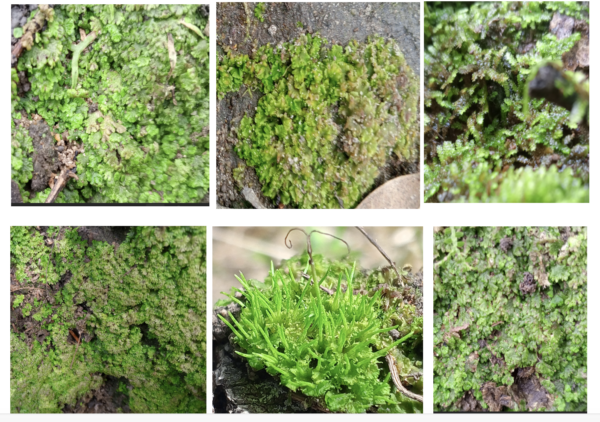Bryophytes are rarely considered in biodiversity surveys in West Africa but hold an outsized and prominent role in ecosystem functions, contributing to soil development, nutrient biogeochemical cycling, water retention, plant colonization, seed germination, seedling growth, and forest renovation. They also serve as indicator species and can detect subtle changes in plant communities over time. The National Herbarium of Benin moves into their second year of a 3-year project Mobilizing Data for Identification Taxonomy, Socioeconomic Importance and Conservation Assessment of Bryophytes in Benin to addresses the need to inventory and mobilize data for this under collected data group.
One of the key goals of this project and all JRS funded projects is to build and sustain local capacity. In this spirit, the project supported two PhD students as they were trained in three main categories: introduction to bryology, field work & herbarium curation and bryophyte identification. Over the past 12 months the students participated in the identification, processing and storing of many recorded bryophytes specimens.


Recently the PhD students traveled to University of Cape Town, South Africa to join Prof. Terry Hedderson in fieldwork in the southern Afromontane region collecting Bryophytes.


When the students return to Benin in June they will continue their work with Project lead Dr. Gbèwonmèdéa Hospice DASSOU as the project looks to assess the socioeconomic importance and threats of Bryophytes in Benin.
Read more about the Mobilizing Data for Identification Taxonomy, Socioeconomic Importance and Conservation Assessment of Bryophytes in Benin project here.

